Connection found in elitism, unethical behavior, study says
It turns out there may be a good reason to distrust that insufferable guy who’s always bragging about the prestigious school he attended.
A San Diego State University professor’s recently released research paper finds people with high opinions of themselves have a different perception of ethics than others.
They’re more likely to be OK with taking office supplies, borrowing from the cash register without asking and writing off personal dinners as company expenses, SDSU professor Valerie Alexandra found.
“There’s a lot of conversation about how our societies are becoming more cynical,” said Alexandra, an assistant professor of management at the Fowler College of Business at SDSU.
“People who are cynical have negative attitudes toward other people. They’re frustrated with social institutions, and so I looked at these beliefs and found those people who believe in social cynicism also support social inequality.”
Social cynicism, she said, is a belief that people and institutions are not trustworthy, and that showing goodwill and kindness toward others often is ineffective. They also tend to view the world as malevolent and others as opportunistic and exploitative, she said.
Her findings were published in December in the Journal of Business Ethics as part of a paper she wrote with researchers from Portugal and Russia, her native country.
Hundreds of students and business professionals from the three countries participated in the study, and their views of themselves and their perceptions of unethical behavior were measured by how they responded to terms such as “Some people are more worthy than others” and “To get ahead in life, it is sometimes necessary to step on others.”
The responses reflect how people from certain groups have a perceived superiority over other groups, or what sociologist refer to as social dominance.
“For example, someone may be a graduate of a particular university, and they believe theirs is so much better than all others and are less likely to engage with people of other universities,” she said.
A similar bias could apply to ethnicity, race, gender and other groups, she continued.
An earlier study had found that Russians are more cynical than people in the U.S. or Portugal, so Alexandra said she and the other researchers expected nationalities to play a role in people’s view of ethical behavior.
“But that’s not what we found,” she said. “We found it doesn’t matter which country you’re in. Your relationship with social cynicism and unethical behavior is going to be the same, no matter what country you’re in.”
The finding could explain in part why the United States, not considered as corrupt as Russia, still could produce Enron, Tyco and scandals involving wealthy and highly educated people, she said.
“A lot of this happens on an individual level,” she said about white-collar criminal behavior such as bribing government officials or over-charging customers to earn higher bonuses.
While the research findings might be discouraging, Alexandra said there also could be a lesson in how to improve business ethics and society itself.
Alexandra noted that previous studies have shown students studying psychology or social work do not have a strong sense of social dominance as economic or business students.
“The question is, why?” Alexandra said. “It’s not that we don’t ask that question, but it’s not our first priority. How do we create a greater feeling of social responsibility with business students and among people who are more likely to become more socially dominant?”
Alexandra suggested that business schools make empathy part of what students learn. She also suggested businesses hire people who are less cynical and less socially dominant, which may lead to fewer scandals down the road.
Voters also should consider the same lessons when selecting their leaders, she said.
“If we’re going to close our eyes to social dominance, we might we as well close our eyes to unethical behavior,” she said.
Homeless Playlist

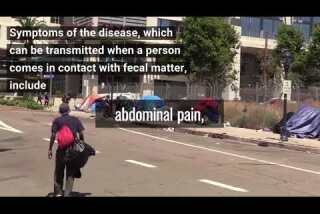
San Diego hepatitis outbreak continues to grow: 481 cases
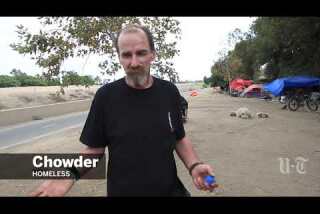
Homeless entrenched in booming tent city along Santa Ana River

San Diego mayor agreed to homeless hub, then delayed, advocates say

Homeless outreach in San Diego
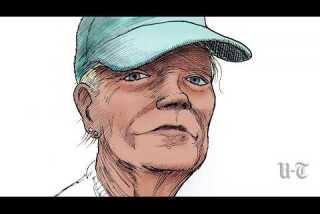
Video: Street Art: Portraits of San Diego's Homeless #8
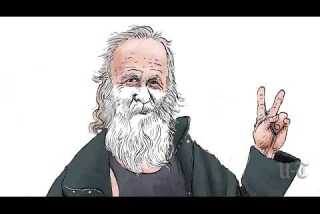
Street Art: Portraits of San Diego's Homeless #7
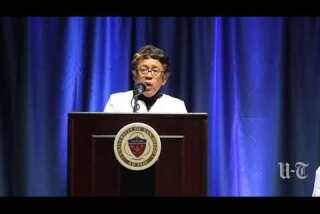
Pitching a tent plan for San Diego's homeless
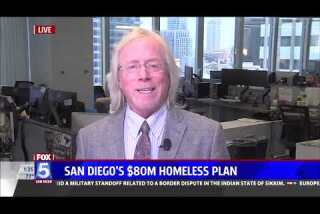
Homeless efforts get $80M boost for various services
760-529-4939